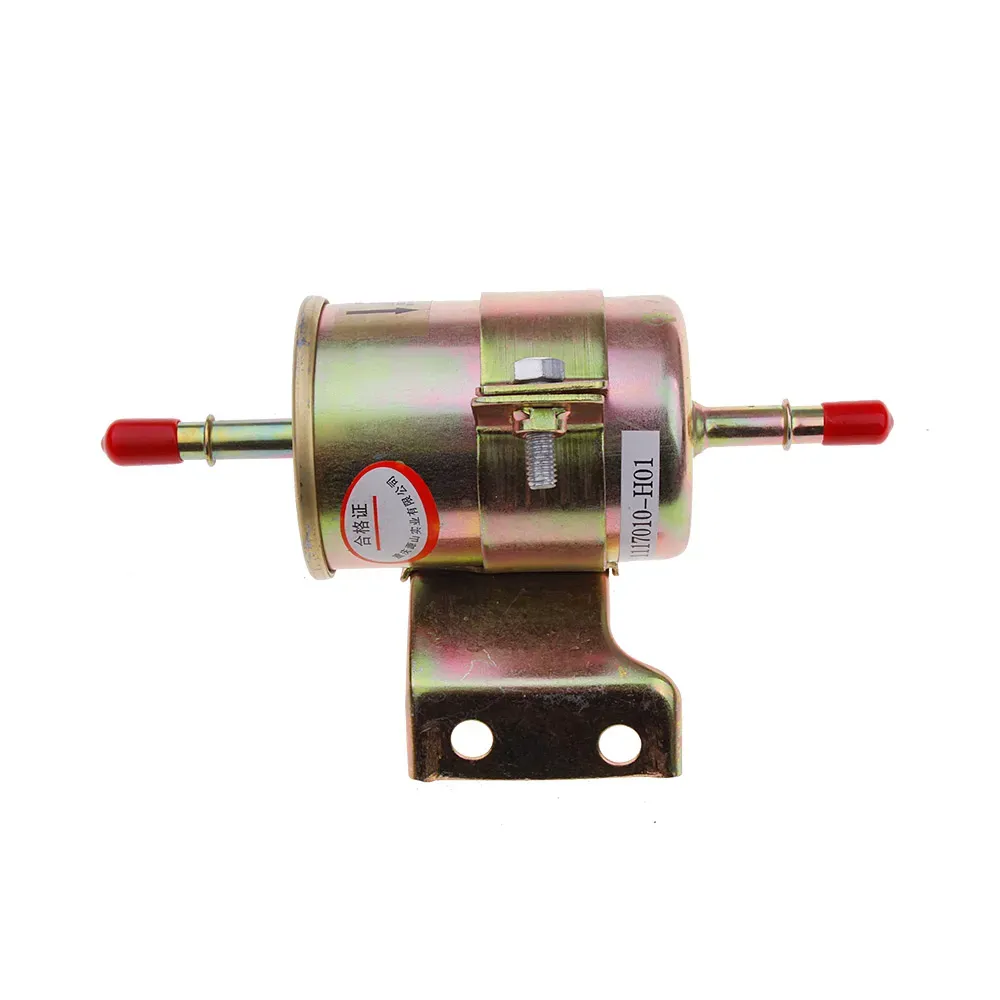
Your vehicle’s engine deserves nothing less than clean, high-quality fuel delivered efficiently. A Auto degvielas filtrs is your engine’s first line of defense against harmful contaminants like dirt, rust, and moisture that can disrupt combustion, damage components, and lower fuel efficiency. Whether you drive a compact sedan or a diesel-powered SUV, upgrading to a high-performance automotive fuel filter means investing in smoother rides, cleaner emissions, and reduced maintenance costs. Let’s explore why this small but powerful component should be a top priority in your vehicle care plan.

Are Diesel and Gasoline Car Fuel Filters Really That Different?
Yes—and the differences matter more than most drivers realize. A Auto degvielas filtrs for a diesel vehicle is engineered with a fundamentally different purpose than one designed for gasoline engines. Diesel filters are typically more robust and include an integrated water separator because diesel fuel is hygroscopic, meaning it attracts and retains water. Water in diesel systems can cause injector damage and corrosion, so filtration needs are more complex.
On the other hand, a Auto degvielas filtrs in gasoline vehicles is designed to trap very fine particles, protecting high-precision components like fuel injectors and pressure regulators. The filter media used, flow rate specifications, and water separation abilities vary significantly between the two.
Using the wrong type of filter can compromise fuel delivery, engine health, and overall system performance. That’s why leading car oil filter manufacturers also specialize in producing fuel filters tailored to specific engine types. When you choose a trusted provider, you’re not just getting a generic product—you’re getting precision engineering that fits your engine's needs.
Is the Car Fuel Filter a Vulnerable Part or a Silent Hero?
Although it may be small and out of sight, the Auto degvielas filtrs plays a critical role and is indeed considered a wear-and-tear item. That means it must be inspected and replaced at regular intervals. Over time, trapped debris builds up inside the filter, restricting fuel flow and increasing strain on the fuel pump. If left unchanged, this can cause sluggish acceleration, engine misfires, and reduced fuel economy.
Think of the automotive fuel filter as a gatekeeper. It silently protects your fuel system from long-term damage, making it one of the most important yet undervalued components of your vehicle. It is particularly vulnerable when poor-quality fuel is used or when driving conditions expose the vehicle to more contaminants, such as dusty environments or older fueling stations.
Fortunately, top car oil filter manufacturers now produce ultra-durable filters using advanced materials and multilayer filtration technologies. These filters provide longer service intervals and higher dirt-holding capacities, meaning fewer replacements and more protection for your engine.
How Does the Car Fuel Filter Differ from an Oil Filter?
Many vehicle owners confuse the Auto degvielas filtrs with the oil filter, but they serve two completely different functions. The oil filter cleans the engine oil, removing metal particles, sludge, and other impurities that result from internal engine wear. Its job is to protect moving engine parts from excessive friction and overheating.
In contrast, the automotive fuel filter is tasked with ensuring that only clean, contaminant-free fuel enters the combustion chamber. It sits between the fuel tank and engine, safeguarding fuel injectors and maintaining the optimal air-fuel mixture. While both are filtration components, the environments they operate in and the contaminants they handle are completely different.
This distinction also influences the car fuel filter cost. Fuel filters often require higher filtration precision due to the extremely tight tolerances of modern injectors. Therefore, pricing can vary depending on filtration technology, materials used, and vehicle make and model.
What Influences Car Fuel Filter Cost and How to Choose Wisely
When considering car fuel filter cost, it's important to understand that not all filters are created equal. Several factors influence pricing, including the brand reputation, the complexity of the filter, and the materials used in construction. High-performance filters may feature corrosion-resistant casings, multi-layer synthetic filter media, and high-flow designs that reduce pressure drop—all of which raise the price, but also the value.
While it might be tempting to opt for a cheaper aftermarket filter, doing so can lead to costly consequences like clogged injectors, reduced mileage, and eventual engine damage. That’s why experienced drivers turn to established car oil filter manufacturers, who consistently deliver OE-standard or superior components for long-lasting results.
Premium automotive fuel filter options are designed with exact fitment, long service life, and uncompromising performance in mind. They’re not just an expense—they’re an investment in your vehicle’s longevity and efficiency.
Car Fuel Filter FAQs
Are there visual signs that my car fuel filter needs replacement?
Yes, if you notice hard starting, stalling, poor acceleration, or reduced fuel economy, these could be signs of a clogged Auto degvielas filtrs.
How often should I change my automotive fuel filter?
It depends on your vehicle model and fuel quality, but most manufacturers recommend replacing the automotive fuel filter every 20,000 to 40,000 miles.
Why is the car fuel filter cost sometimes higher for newer vehicles?
Modern engines have tighter fuel system tolerances and require more advanced filtration, which increases the car fuel filter cost due to higher manufacturing precision and quality materials.
Can I clean and reuse a car fuel filter?
Most Auto degvielas filtrs units are not designed to be cleaned or reused. Replacing them at recommended intervals is the safest and most effective practice.
Do car oil filter manufacturers also make fuel filters?
Yes, many reputable car oil filter manufacturers also produce high-quality Auto degvielas filtrs products, ensuring comprehensive protection for both your engine oil and fuel systems.
-
Vehicle Performance with Premium Car Filter SolutionsJaunumiJul.02,2025
-
Upgrade Engine Performance with Timely Air Filter MaintenanceJaunumiJul.02,2025
-
Optimize Vehicle Health with Timely Air Filter ReplacementJaunumiJul.02,2025
-
Every Drive with Next-Level Car Filtration SystemsJaunumiJul.02,2025
-
Driving Comfort with Advanced Air Filtration SystemsJaunumiJul.02,2025
-
Cleaner with Next-Generation Automotive Air FiltrationJaunumiJul.02,2025
-
The Importance of Cabin Filter and Engine Filter: The Role and Maintenance of Cabin Filter and Engine FilterJaunumiJun.25,2025
Saistīts Produkti




